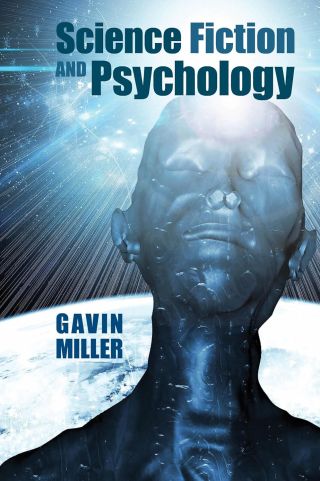Media
Book Review: "Science Fiction and Psychology"
How well can science fiction shine a light to reveal human psychology?
Posted February 15, 2024 Reviewed by Michelle Quirk

Gavin Miller’s Science Fiction and Psychology appears as book 62 in the Liverpool Science Fiction Texts and Studies from Liverpool University Press. Readers accustomed to titles that examine specific popular culture topics “and psychology” (e.g., House and Psychology—Cascio, 2011) or, more commonly, “and philosophy” (e.g., Science Fiction and Philosophy—Schneider, 2016) might assume that it is written for a general audience. It is not. The outside cover does not identify the book on the front, spine, or back as a volume in a literary critique series, which may be important information not only for those who follow the series but also for those who avoid it. Science Fiction and Psychology is an academic work for an academic audience.
Miller’s monograph addresses a need: It contributes to the scholarly understanding of multiple relations between science fiction and psychology: psychology’s influence on science fiction, the psychological interpretation of science, psychologist characters’ roles in utopic and dystopic fiction, and psychology’s employment of science fiction for educational purposes. The few previous books dedicated to interpreting psychological themes across science fiction as a field tended to be short-story anthologies that included brief essays of introduction, and they are not recent (e.g., Katz, Warrick, & Greenberg, 1974; Melvin, Brodsky, & Fowler, 1977). Later works focus on characters and stories in specific franchises such as Star Wars or tangential niches such as The Psychology of Superheroes (Rosenberg, 2008).
5 Key Psychological Areas Explored
The text explores “science fiction’s use of discourses furnished by academic psychology” from psychology’s inception in the late 19th century until the close of the 20th. In Miller’s view, the emergence of neuroscience both transformed psychology and diminished its authority as the science of human nature in the 1990s, and the then-recent cyperpunk movement conspicuously acknowledged neuroscience’s displacement of psychology as the authority of neurological discourse within science fiction. Between its introduction and conclusion, five chapters offer textual readings to examine what the author sees as five key psychological orientations: evolutionary psychology, psychoanalytic psychology, behaviourism and social constructionism, existential-humanistic psychology, and cognitive psychology. As the author notes, the selection is not exhaustive within the five areas nor within psychology per se because it excludes many others, such as Piaget’s, that might offer insightful discourse. Instead, the author selected schools of thought he saw as “fruitful for science fiction.”
Miller, a senior lecturer in medical humanities, is not a psychologist; his Ph.D. is in English literature. That does not necessarily pose a problem in terms of the book’s scholarly worth, because outside perspectives are valuable, even necessary, and sometimes more objective. It may pose a problem, however, if readers who do not know this expect something else.
Literary Orientation
Not only does the text speak to a scholarly readership; more specifically, it appears to be written for those educated in textual analysis and literary criticism. The book invokes little psychological jargon, but the author does explain terms well when they come up (e.g., reinforcers) and contemplates the definition of psychology itself. The book includes even fewer terms specific to science fiction or other sciences, which is not a problem in and of itself because the text is exploring what science fiction has to say about human nature, not Dyson spheres and wormholes. Compare that, though, with how the author repeatedly uses the language of literary criticism without defining terms (e.g., novums, topos, didacticism). Such a contrast suggests an expectation that readers already know literary criticism well, or that anyone who does not should simply look up the terms even though they will not have to do likewise for psychological terminology. If so, the book should be more clearly promoted as such. A title such as Literary Critique of Science Fiction and Psychology may have been more appropriate. Even so, its narrative style flows well. This is a smart, well-written, thought-provoking book.
Though more limited in scope than the mission to cover science fiction and psychology might imply, this is material worth reading. Any one of its chapters, if expanded upon as written by Miller, would make for an intriguing book on its own.
References
Cascio, T. (Ed.) (2011). House and Psychology: Humanity Is Overrated. Wiley.
Katz, H. A., Warrick, P., & Greenberg, M. H. (Eds.). (1974). Introductory Psychology Through Science Fiction. Rand McNally.
Melvin, K. B., Brodsky, S. L., & Flower, R. D., Jr., (Eds.) (1977). Psi Fi One: An Anthology of Psychology in Science Fiction. Random House.
Miller, G. (2020). Science Fiction and Psychology. Liverpool University Press.
Rosenberg, R. S. (Ed.). The Psychology of Superheroes: An Unauthorized Examination. BenBella.
Schneider, S. (2016). Science Fiction and Philosophy (2nd ed.). Wiley-Blackwell.


